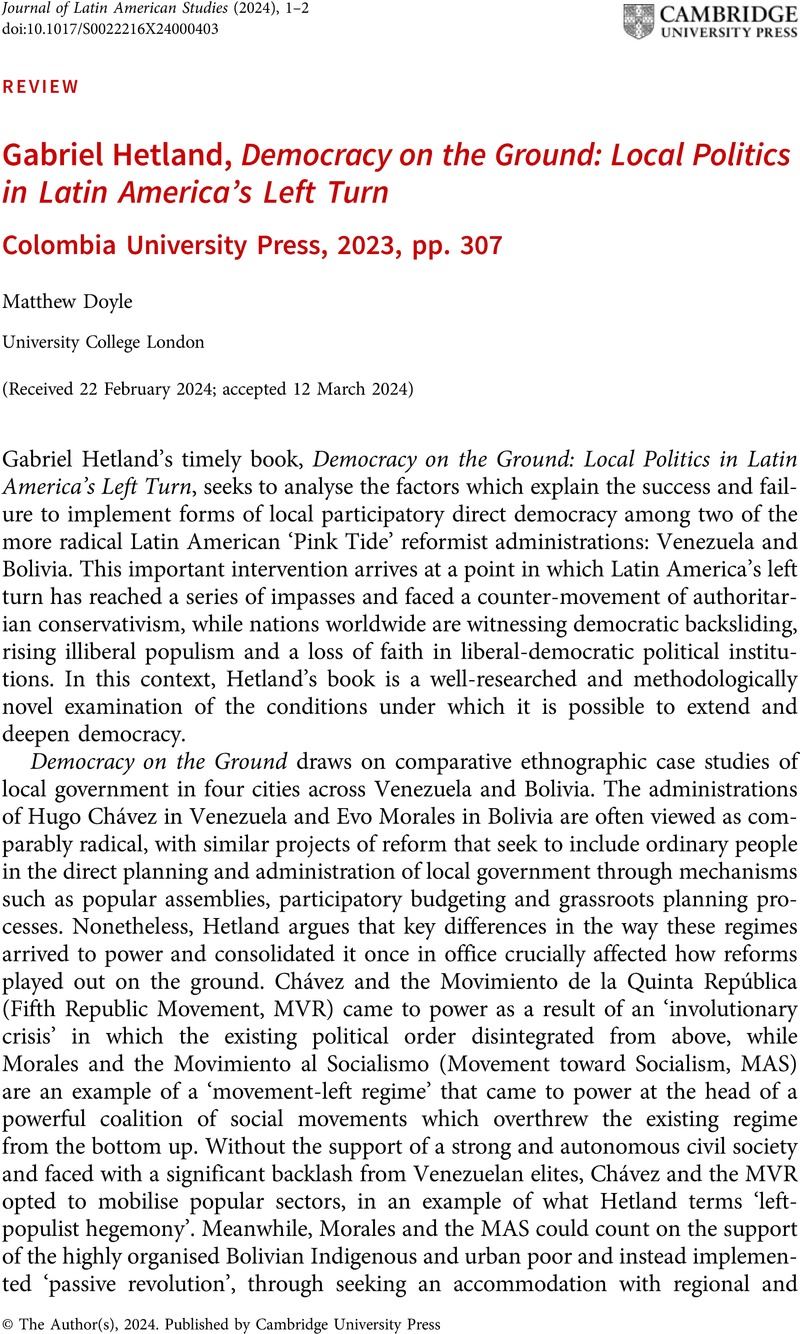No CrossRef data available.
Article contents
Gabriel Hetland, Democracy on the Ground: Local Politics in Latin America's Left Turn Columbia University Press, 2023, pp. 307
Review products
Gabriel Hetland, Democracy on the Ground: Local Politics in Latin America's Left Turn Columbia University Press, 2023, pp. 307
Published online by Cambridge University Press: 22 May 2024
Abstract
An abstract is not available for this content so a preview has been provided. Please use the Get access link above for information on how to access this content.

- Type
- Reviews
- Information
- Copyright
- Copyright © The Author(s), 2024. Published by Cambridge University Press



